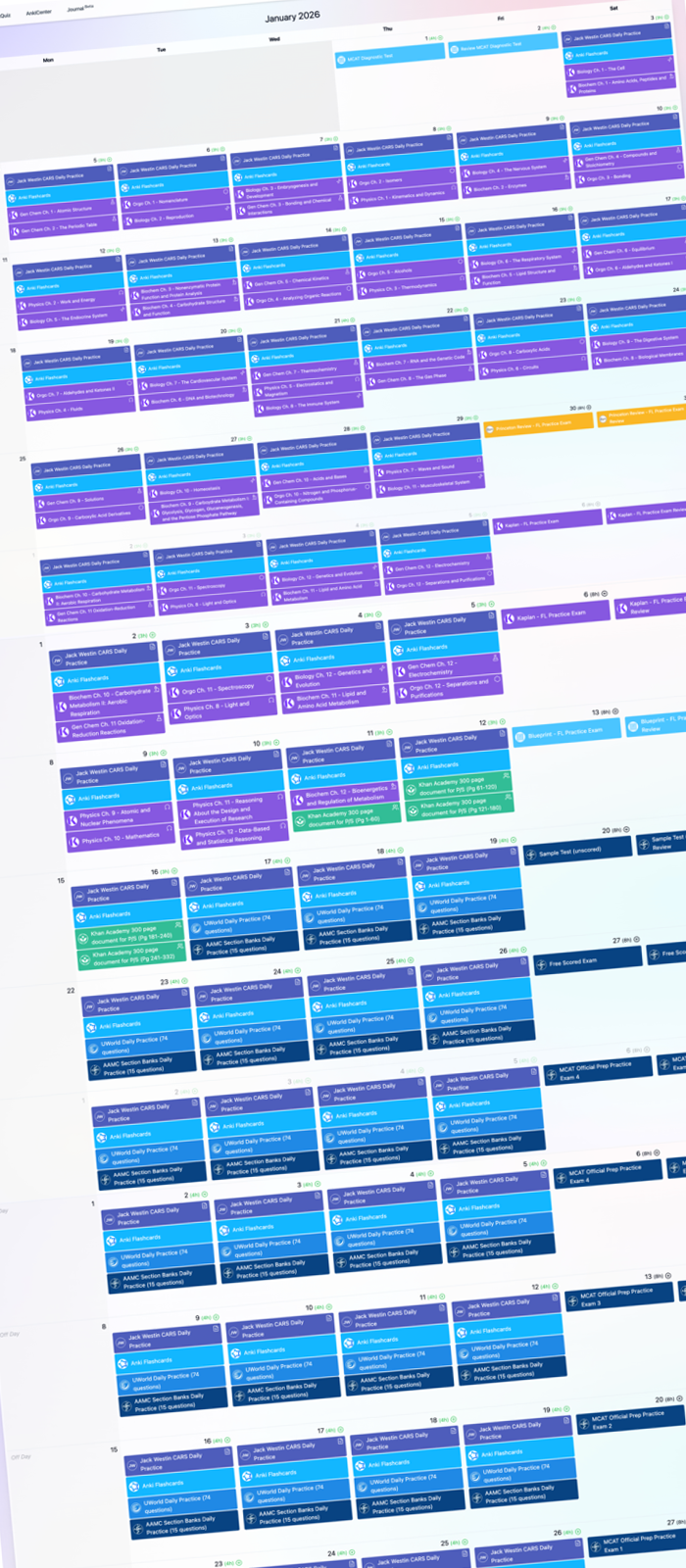MCAT CARS Strategy: How to Master the Critical Analysis and Reasoning Section
Published on Jun 9, 2025
The CARS (Critical Analysis and Reasoning Skills) section of the MCAT often gives students the most trouble. It’s unlike the science sections—there are no formulas to memorize, no facts to recall—just you, a dense passage, and questions that test your reasoning, comprehension, and ability to infer.
But there’s good news: CARS is a learnable skill. With the right approach, consistent practice, and a little patience, your score can significantly improve.
What is the MCAT CARS Section?
CARS consists of 9 passages, each with 5–7 questions, for a total of 53 questions in 90 minutes. The passages come from humanities and social sciences texts—think ethics, history, philosophy, and literature.
You don’t need outside knowledge. Everything is based on what’s in the passage. But that also means you need to master reading efficiently and thinking critically.
How to Improve at CARS: Core Strategies
1. Read for Structure, Not for Detail
Don’t try to memorize every word or get bogged down by confusing examples. Instead, look for:
- The main point or thesis
- The structure of the argument (how does it unfold?)
- The tone of the author
- Contrasting viewpoints or shifts in reasoning
2. Practice Every Day
CARS improvement comes from repetition. Even just 2–3 passages a day can make a difference. Try to:
- Practice 5 days a week
- Review every passage thoroughly (especially the wrong answers)
- Use timed and untimed practice to train both accuracy and pacing
3. Use Trusted Resources
The most commonly recommended CARS resources include:
- AAMC CARS QPack (official, must-do)
- Jack Westin daily passages (free, decent quality)
- UWorld CARS (more challenging, helpful explanations)
For more practice strategies, check our CARS Practice Breakdown.
4. Don’t Game the Questions
CARS rewards understanding, not tricks. Avoid strategies that feel like “hacks” (e.g., skimming only first/last sentences). Instead, build a strong reading habit and learn how MCAT-style questions work.
5. Review Like It’s a Science Section
For every missed question:
- Identify why your answer was wrong
- Identify why the correct one was right
- Re-read the section of the passage if needed
- Write down patterns in the types of questions you miss (e.g., tone, inference, main idea)
Keep a CARS journal or use MCAT.tools Journal to track your progress.
6. Use Highlighting or Note Techniques (if helpful)
Some students benefit from light highlighting or writing a 3–5 word summary after each paragraph. Others find it slows them down. Try both and see what fits your style.
CARS Timing Tips
- You have ~10 minutes per passage
- If a passage is especially tough, move on and come back later
- Avoid getting stuck on a single question—your goal is steady progress
- Practice with and without timers to improve pacing flexibility
ADHD or Focus Tips for CARS
Students with ADHD or focus challenges often struggle with staying engaged during long reading sessions. Here are a few tips:
- Break your daily passages into multiple sessions (e.g., 2 in the morning, 2 in the afternoon)
- Use tools like Pomodoro timers (25 min study / 5 min break)
- Read aloud or subvocalize (if allowed)
- Track mental fatigue and do harder passages when you’re sharpest
Final Thoughts
CARS feels unpredictable at first—but with time and daily exposure, you’ll begin to recognize patterns and question types. Don’t expect perfection. Progress is often slow and steady. Trust your review process and stay consistent.
For more guidance, check our 3-Phase Study Plan to see where CARS fits in and how to balance it across your prep.

